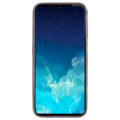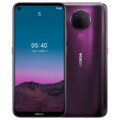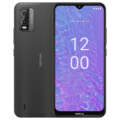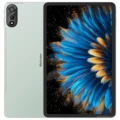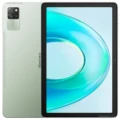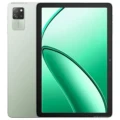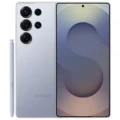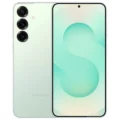Nokia 110 4G 2nd Edition
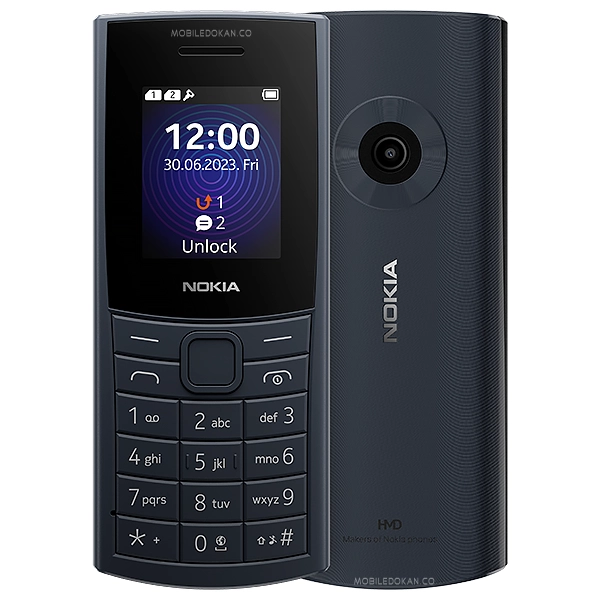

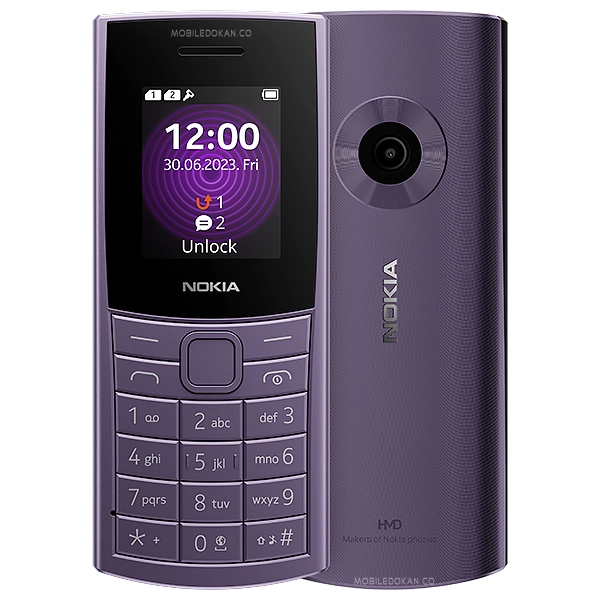
Available
Advertisement
Pro and cons
Pros
- IPS LCD display 1.8-inch.
- 48MB internal storage, 128MB RAM.
- QVGA rear primary camera.
- MP3 Player and Games, Call records.
- 1450mAh battery capacity.
Cons
- No WIFI and GPS.
- No selfie camera.
Specifications
Prices
| Expected price The expected price represents the anticipated cost of a product converted from major currencies like the Dollar, Euro, Yuan, and Rupee. | ৳10,000 |
Launch
| Announced | 2024, December |
| Status | Available. Released 2024, December |
Network
| Technology | GSM / HSPA / LTE |
| 2G bands It’s the 2nd generation mobile data communication technology. | GSM 900 / 1800 - SIM 1 & SIM 2 |
| 3G bands It is the 3rd generation mobile data communication technology. | HSDPA 850 / 900 / 1700(AWS) / 1900 / 2100 HSDPA 850 / 900 / 2100 |
| 4G bands It is the 4th generation mobile data communication technology. | LTE |
| Speed | HSPA, LTE |
Body
| Dimensions It's the size of the phone in format (H x L x W) and the volume of the phone where available. | 121.5 x 50 x 14.4 mm (4.78 x 1.97 x 0.57 in) |
| Weight | 94.5 g (3.35 oz) |
| SIM SIM (Subscriber Identity Module) is a small card that contains a mobile network subscriber's account information. This allows the phone to use the card to attach to a mobile network. The SIM card is most commonly associated with GSM and UMTS mobile networks. Moving a SIM card from one phone to another allows a subscriber to switch mobile phones without having to contact their mobile network carrier. SIM cards can also be used by a phone to store limited amounts of data, such as phone numbers and text messages. | Nano-SIM Nano-SIM + Nano-SIM |
| Others | Flashlight IP54 dust and splash resistant |
Display
| Type A number of display technologies and types used in mobile phones TFT (Thin Film Transistor), IPS (In-Place Switching), OLED (Organic Light Emitting Diode), AMOLED (Active-Matrix Organic Light-Emitting Diode), Super AMOLED (an even advanced version of AMOLED), Resistive Touchscreen (Resistive touchscreens contain two-layer of conductive material with a very small gap between them which acts as a resistance), Capacitive Touchscreen (Capacitive touchscreen technology consists of a layer of glass coated with a transparent conductor) | IPS LCD |
| Size The industry-standard way of representing display sizes is publishing their length in inches. The screen-to-body ratio is a measure that relates to the size of the screen bezels. The bigger the ratio, the smaller the bezels are, meaning the display takes up a larger area on the device's front. | 1.8 inches, 10.0 cm2 (~16.5% screen-to-body ratio) |
| Resolution Display Resolution is the measuring way of how much pixels does a display contains. A higher resolution means more pixels and more pixels provide the ability to display more visual information (resulting in greater clarity and more detail). | 120 x 160 pixels, 4:3 ratio (~111 ppi density) |
Platform
| OS Every Mobile Phone system runs on a base software called Operating System (OS). Operating System controls all basic operations of the Mobile (such as smartphones, PDAs, tablet computers, and other handheld devices). The Operating System allows the user to install and run third party applications (apps), apps are used to add new functionality to the device. | Feature Phone |
| Chipset It is a group of integrated circuits designed to perform one or more dedicated functions, often with real-time computing constraints, Popular smartphones are equipped with more advanced embedded chipsets that can do many different tasks depending on their programming. | - |
Memory
| Card slot A special slot for inserting a memory card for expanding your storage. It is a special slot for inserting a memory card. Memory cards allow you to expand the phone's built-in memory, A memory card (sometimes called a flash memory card or a storage card) is a small storage medium used to store data such as text, pictures, audio, and video, for use on small, portable or remote computing devices such as mobile phones, mp3 players, digital cameras. | microSDHC |
| Phonebook | Yes |
| Call records | Yes |
| Internal Internal memory is the memory available onboard (chip or motherboard) which is given while manufacturing at the factory. is a data storage space (flash memory) mostly used in smartphones, tablets, and other electronic devices where operating system, apps, music, photos, videos, files, and other user data Is stored. | 48MB |
| RAM RAM (Random Access Memory) is a type of mobile, computer memory that can be accessed randomly, any byte of memory can be accessed without touching the preceding bytes that allow information to be stored and accessed quickly from random locations. RAM is the most common type of memory found in computer systems, smartphones, tablets, and other electronic devices. | 128MB |
Main camera
| Single | QVGA |
Selfie camera
| Single | No |
Sound
| Alert types | Vibration, Ringtones |
| Loudspeaker Loudspeaker is a small sound driver fitted within a mobile phone, which is used to produce sound. | Yes |
| 3.5mm jack A common connector for plugging in audio output or input. | Yes |
Connectivity
| WLAN Wireless Local Area Network (WLAN) is a method of distributing data wirelessly to a local area network practically to the internet. It is a popular wireless networking technology using radio waves to provide high-speed network connections that allow devices to communicate without cords or cables, Wi-Fi is increasingly becoming the preferred mode of internet connectivity all over the world. | No |
| Bluetooth Bluetooth is a wireless technology standard for exchanging data over short distances from fixed and mobile devices. It is a wireless communications technology for exchanging data between mobile phones, headsets, computers, and other network devices over short distances without wires, Bluetooth technology was primarily designed to support simple wireless networking of personal consumer devices. | 5.0, A2DP |
| GPS GPS (Global Positioning System) originally Navstar GPS, is a satellite-based radio navigation system. It is a satellite-based radio navigation system, GPS permits users to determine their position, velocity, and the time 24 hours a day, in all weather, anywhere in the world, In order to locate your position, your device or GPS receiver must have a clear view of the sky. | No |
| NFC NFC (Near Field Communication) is a shorter range of high-frequency data transferring technology. It is a set of standards for smartphones and similar devices to establish peer-to-peer radio communications with each other by touching them together or bringing them into proximity, usually no more than a few inches. | No |
| FM radio FM broadcasting is a method of radio broadcasting using frequency modulation technology. | Wireless FM radio |
| USB USB is a standard for a wired connection between two electronic devices, including a mobile phone and a desktop computer. | USB Type-C |
| Infrared port IrDA (Infrared Data Association) is an old data sharing technology in the means of Infrared Port. It uses a beam of infrared light to transmit information and so requires a direct line of sight and operates only at close range. |
Features
| Messaging SMS (short message service) is a text messaging service component of most telephone, internet, and mobile-device systems. | SMS |
| Games | Yes |
| Java JAVA is a Runtime Environment or platform of application where particular apps can run it. | No MP3 player |
Battery
| Type Cell phones run on various kinds of batteries depending on the manufacturer, phone size or shape, and features. There are basically four types of cell phone batteries Lithium Polymer (Li-Po), Lithium-Ion (Li-Ion), Nickel Metal Hydride, and Nickel Cadmium. | Removable Li-Ion |
| Capacity The unit of capacity is milliamp-hours (mAh), which means 3000mAh can be put on the battery to discharge it in one hour. The battery capacity represents the maximum amount of energy that can be extracted from the battery under certain conditions. | 1450 mAh |
More
| Made by | Finland |
| Color | Midnight Blue, Arctic Purple |
Disclaimer
We do not guarantee that the information of this page is 100% accurate and up to date.
Nokia 110 4G 2nd Edition Price in Bangladesh January, 2025
The Nokia 110 4G 2nd Edition feature phone was available. The basic variant of the Nokia 110 4G (2024) costs 10000 Taka in Bangladesh. The General telephone is available in Bangladesh in Midnight Blue and Arctic Purple color variants.
| Model | Nokia 110 4G 2nd Edition |
| Price | BDT. 10,000 |
| Display | 1.8″ 120×160 pixels |
| RAM | No |
| ROM | No |
| Release date | 2024, December |
Nokia 110 4G 2nd Edition highlights
The body dimensions of the Nokia 110 4G 2nd Edition phone are 121.5 x 50 x 14.4 mm.
Reason to Buy
In this paragraph, we will describe the important reasons for buying this feature phone. Why may a person buy this feature phone? Firstly, when anyone wants to buy a device, they look for premium features according to their price. So, let us find out some eligible things in the 110 4G 2nd Edition.
